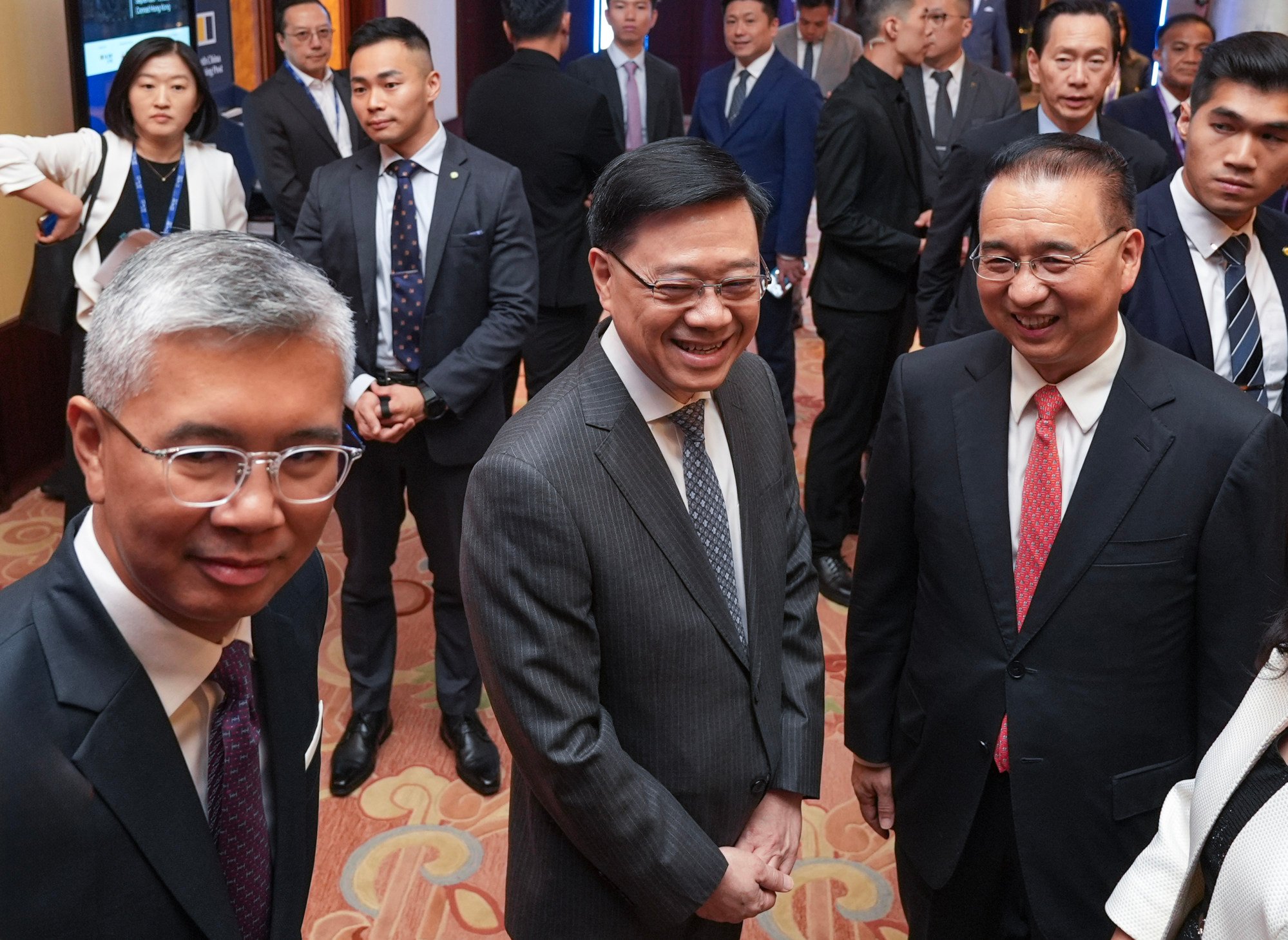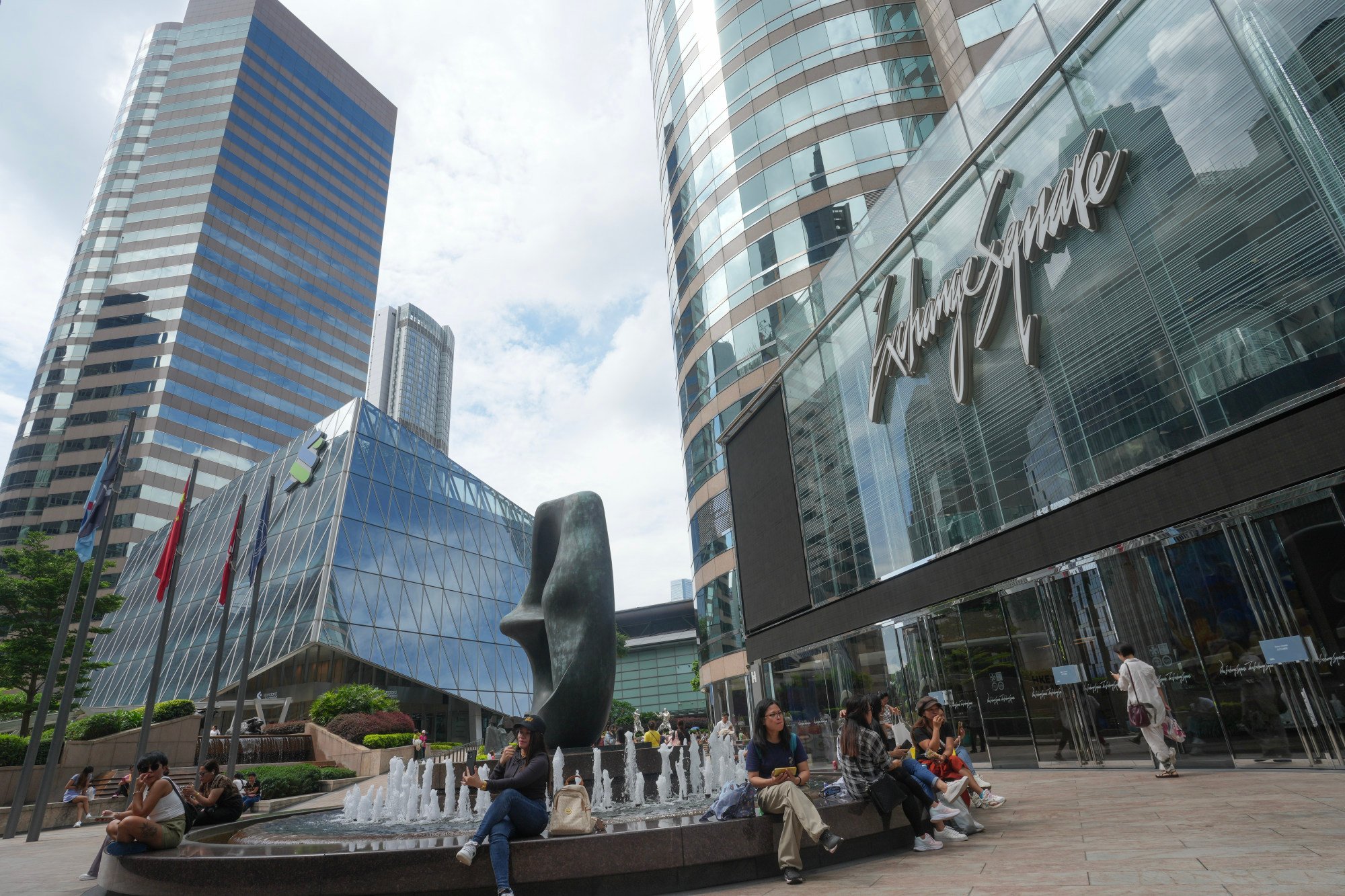How Hong Kong can reassert its global edge in an uncertain world
The city’s vibrancy, uniqueness, connectivity and agility make it all the more relevant in a fast-evolving global economy

In the wake of Chief Executive John Lee Ka-chiu’s successful visits to Qatar and Kuwait, Hong Kong’s efforts to deepen connections with emerging markets are gaining strong momentum. The signing of 59 memorandums of understanding and agreements has laid the groundwork for advancing the city’s economic and cultural links with the Middle East.
The visit underscores Hong Kong’s strategic role as a gateway connecting the Chinese mainland and the world and reflects the city’s strategy to diversify global economic partnerships amid a rapidly evolving landscape.
In today’s interconnected world, a single disruption can trigger sweeping impacts and unprecedented volatility. With this volatility comes growing uncertainty. The dismantling of the post-Cold-War consensus on globalisation has given way to fragmented markets and arbitrary trade practices, compounding the complexity of deeply intertwined international relationships.
This complexity, coupled with rapid technological breakthroughs, has created a climate of ambiguity in which a new global consensus has yet to emerge and the long-term implications of technological change remain unclear.
In this evolving landscape that can be defined by the VUCA concept – which focuses on navigating environments characterised by volatility, uncertainty, complexity and ambiguity – Hong Kong’s relevance is not diminished but amplified.
To meet the challenges, the city must harness its enduring strengths while expanding global engagement and solidifying its position as a gateway to the mainland, a platform for global capital and an innovation hub.
To navigate today’s rapidly transforming world, we must rethink how we understand it. Hong Kong’s core attributes – vibrancy, uniqueness, connectivity and agility – can reframe VUCA as a road map for resilience and growth.

Hong Kong is among the world’s most dynamic and vibrant economies. Backed by a low-tax regime, a robust legal framework and an open market, the city offers a fertile ecosystem for start-ups and established enterprises. According to the World Bank’s Business Ready 2024 report, Hong Kong ranks among the top economies to do business.
Under “one country, two systems,” Hong Kong offers a unique combination of familiar institutions and efficient access to the Chinese mainland. National strategies such as the Greater Bay Area development zone and the Belt and Road Initiative have opened new frontiers of opportunity, with Hong Kong playing a pivotal role in cross-border trade, investment and innovation.
In terms of connectivity, Hong Kong’s strategic location and world-class infrastructure have long served as a hub where people, capital and cultures converge. It also provides an irreplaceable institutional framework that bridges the mainland and global markets. Through the Closer Economic Partnership Arrangement, Hong-Kong-based businesses enjoy preferential access to the mainland, strengthening the city’s role as a strategic launch pad for global firms.
Meanwhile, Hong Kong has shown its agility through regulatory foresight. The introduction of a mandatory licensing regime for virtual asset trading platforms in 2023, followed by a 12-initiative road map unveiled earlier this year, underscores the city’s commitment to regulatory clarity and its forward-looking approach to economic transformation.

As many developing economies in Southeast Asia and the Middle East pursue ambitious transformation agendas, deepening engagement with these markets is essential to Hong Kong’s relevance and competitiveness. Engaging with these markets reduces overdependence on any single region and enhances resilience. This requires forging trade agreements and ensuring a stable regulatory environment for businesses.
Even more critical is Hong Kong’s role in, and relationship to, various multilateral frameworks, particularly the Regional Comprehensive Economic Partnership (RCEP), the world’s largest free-trade agreement.
All 15 RCEP members are trading partners of Hong Kong. In 2023, merchandise trade with RCEP economies accounted for around 70 per cent of Hong Kong’s trade while services trade made up roughly 48 per cent in 2022. Full accession to the RCEP would expand Hong Kong’s free trade network, deepen regional integration and reinforce its role as a leading hub for trade, finance and shipping.
To fully realise these opportunities, Hong Kong must take a proactive approach to building its global brand and presence, positioning itself as a gateway to the mainland, a platform for global capital and an accelerator of innovation and technology adoption.

We must communicate Hong Kong’s unique advantage under the “one country, two systems” framework, which allows the city to operate under international commercial norms while offering privileged access to the mainland’s market.
Milestones such as the launch of Asia’s first Saudi-Arabia-focused exchange-traded fund (ETF) in Hong Kong and the debut of Riyadh’s first ETF tracking Hong-Kong-listed shares illustrate the potential for deeper financial cooperation with emerging economies. Expanding such linkages through cross-border financial products will further reinforce Hong Kong’s status as a trusted global capital platform.
Hong Kong’s agile regulatory environment also enables partnerships with emerging economies in areas such as fintech, health technology and smart cities. As a core part of the Greater Bay Area plan, Hong Kong offers an integrated platform that links innovation, investment and advanced manufacturing. This synergy positions the city as a key player in scaling up emerging technologies.

By reframing VUCA through our own strengths, Hong Kong can chart a forward-looking strategy that not only preserves our competitive edge but also reaffirms our vital role in the global economy.
Achieving this vision requires deeper international engagement, particularly with emerging markets. The Hong Kong General Chamber of Commerce has a vital role to play in this journey. As a steadfast advocate for international collaboration and Hong Kong’s long-term competitiveness, the chamber will continue to serve as a bridge between Hong Kong and the rest of the world by expanding global ties and helping our business community flourish in a transformative era.